Iran: Trans-regional interference causes chaos to ensure Israel’s security
Iran's defense minister has said the interference of trans-regional countries in the Middle East is aimed at ensuring the security of the Israeli regime as well as the flow of energy.
In a meeting with his Iraqi counterpart Thabet Muhammad Saeed al-Abbasi in Tehran on Saturday, Brigadier General Mohammad Reza Gharaei Ashtiani stressed that trans-regional states never seek to promote democracy but to create unnecessary crises, discord and conflicts in the region.
“Experience has proven that the presence of trans-regional countries in any part of the world has been accompanied by insecurity and division. This presence in our region is meant to ensure the flow of energy and strengthen the Zionist regime’s security belt through creating artificial crises, differences, and conflicts between Muslim countries,” Ashtiani added.
“Therefore, this presence has never been meant for helping human rights, promoting democracy, and aiding regional people.”
The Iranian minister also said that Iran and Iraq enjoy a geopolitical connection, comprising ethnic, religious, cultural, economic, and energy elements.
He further called for vigilance in the face of plots hatched to damage unity and solitary between the Iranian and Iraqi nations.
The Islamic Republic, he emphasized, believes in supporting Iraq’s unity and integrity and assisting the country with the process of consolidating its stability and security, development, and prosperity.
The presence of foreign-backed terrorist groups in Iraq, including in the provinces adjacent to the Islamic Republic, still poses a threat to the national security of the two countries, Ashtiani pointed out, underling the increasing need for Baghdad-Tehran military, intelligence, and security coordination.
He also expressed Iran’s readiness to provide Iraq with experience to achieve self-reliance in its defense industry.
Referring to the cowardly US assassination of Iran’s top anti-terror commander General Qassem Soleimani and his Iraqi companion Abu Mahdi al-Muhandis, the second-in-command of Iraq’s Popular Mobilization Units (PMU), he said the legal purist of the case is still on the agenda.
In 2014, when Daesh unleashed its campaign of terror in Iraq, Iranian military advisers rushed to the aid of Iraqi armed forces at Baghdad’s request, helping them reverse Daesh’s gains and ultimately liberate their entire homeland from the US-sponsored terror outfit some three years later.
General Soleimani played a key role in vanquishing Daesh in the region. However, angered by the major gains in the counter-terrorism battle, the US assassinated him. General Soleimani was martyred in an operation ordered by former US president Donald Trump upon the anti-terror figure's arrival at Baghdad International Airport on January 3, 2020, on an official visit.
Abbasi, for his part, said the Iraqi armed forces and nation are still fighting against terrorism, appreciating Iran’s assistance as a friendly and neighboring country in this regard.
A strong Iran will lead to a strong Iraq and vice versa, and following this path will resolve regional challenges and crises, he added.
The Iraqi defense minister called for the use of Iran’s capacity for technical, technological, and educational cooperation in the wake of Iraq’s decision to rebuild the country’s armed forces after a long battle with the Takfiri currents.
Hamas thanks Iran, Resistance Front following achievement of ceasefire in Gaza
'Capitulation': Israeli officials and media concede Gaza defeat as truce unfolds
'Gaza has won': Social media users react to ceasefire with mix of relief, joy
Iran seeks South Korea’s assistance for AI, fiber-optic projects
VIDEO | Iran's 'Eqtedar' (Power) maneuver
Israel hits HTS military target in Syria for 1st time since fall of Assad
VIDEO | Press TV's news headlines
Israel has slaughtered 13,000 students in Gaza, West Bank


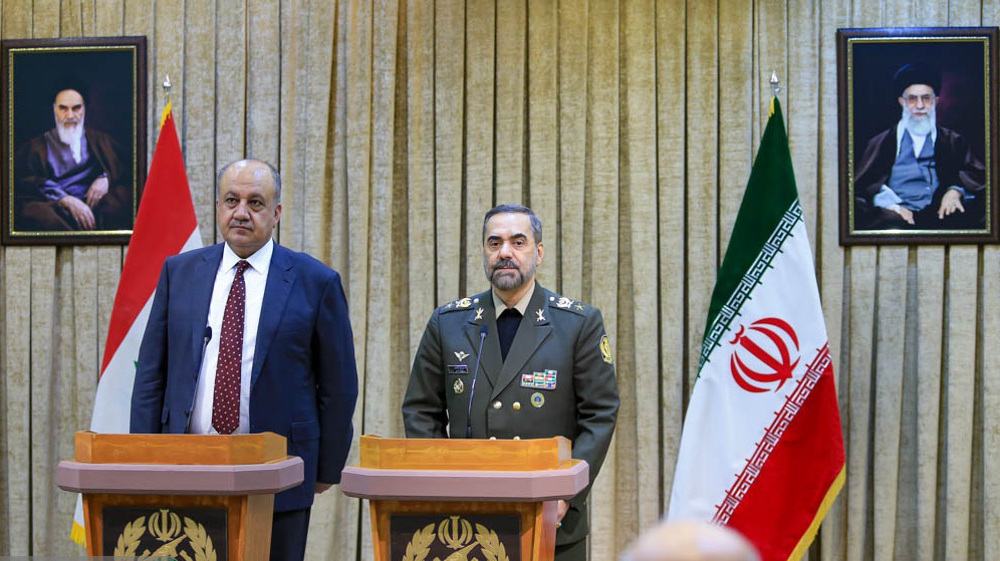
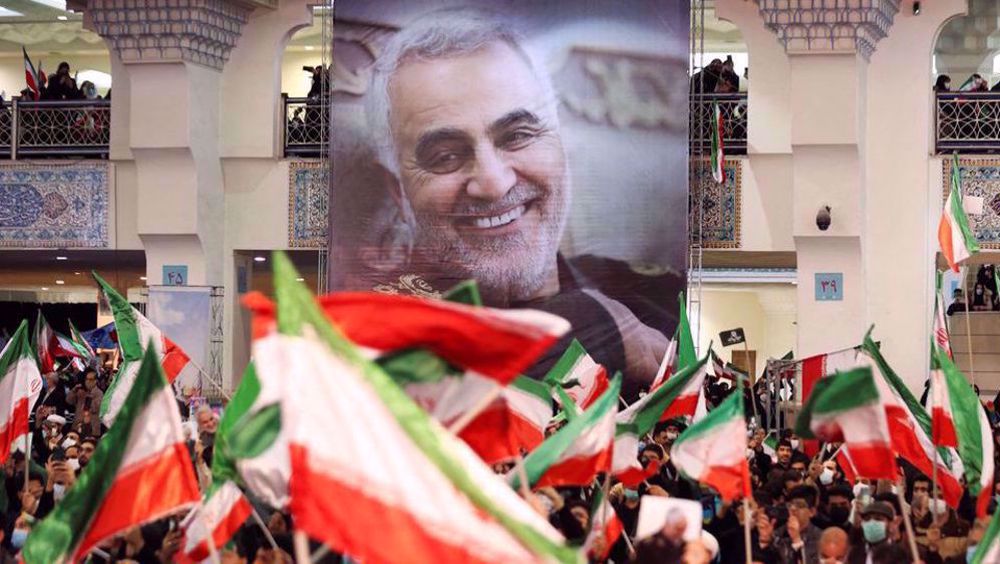
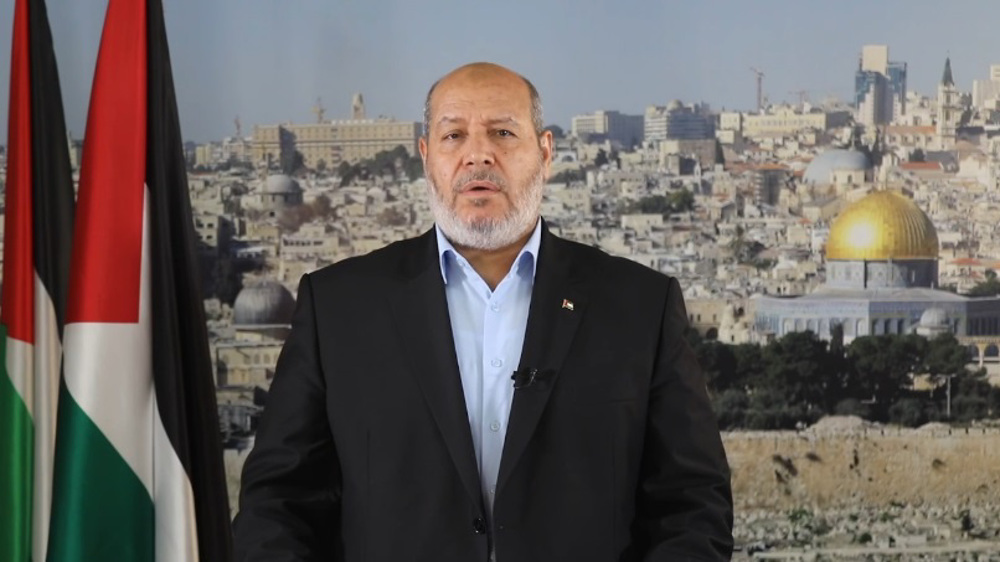





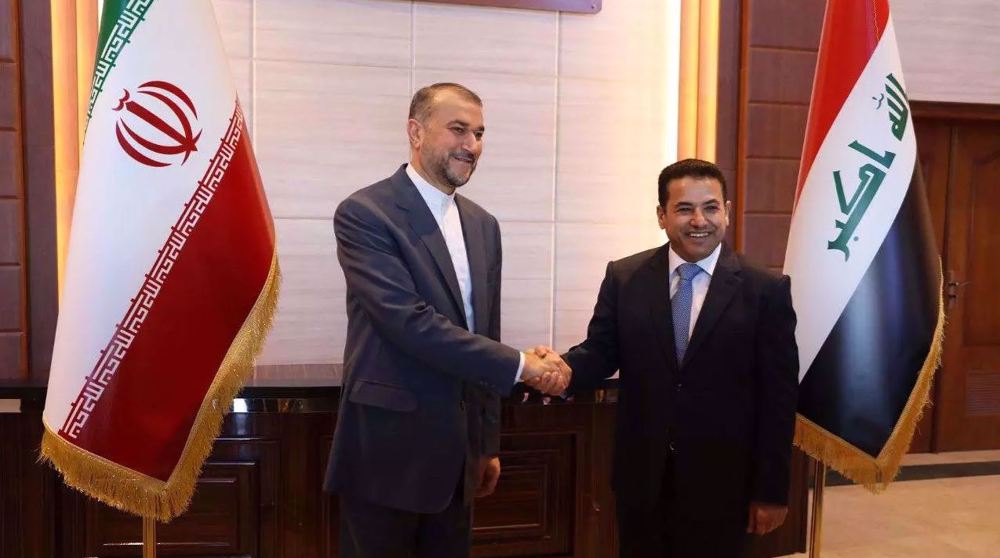
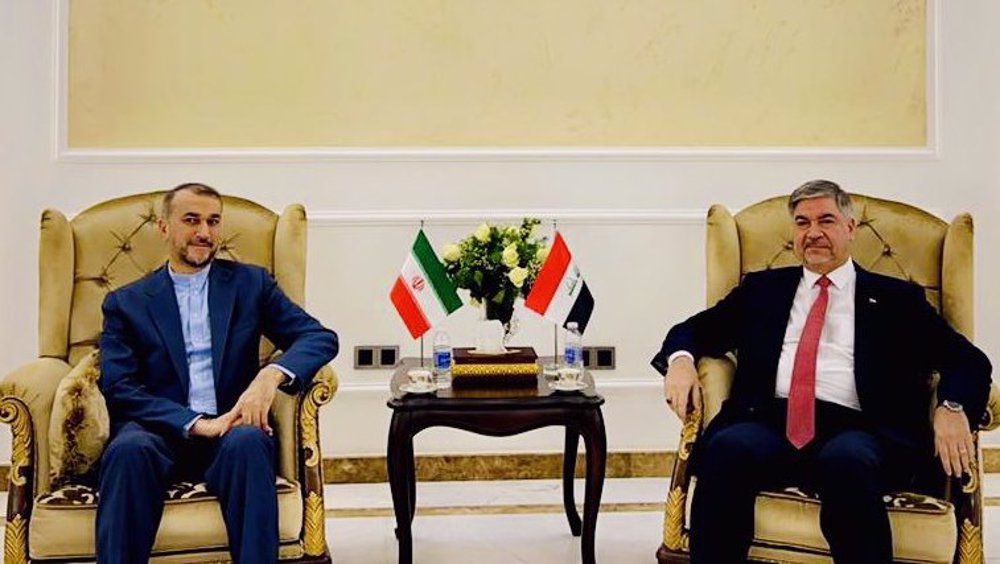
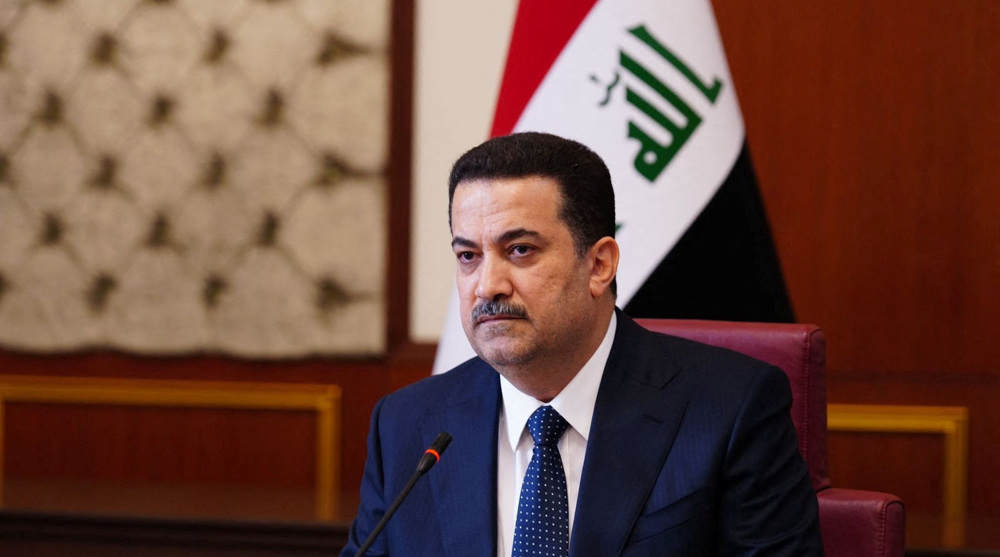
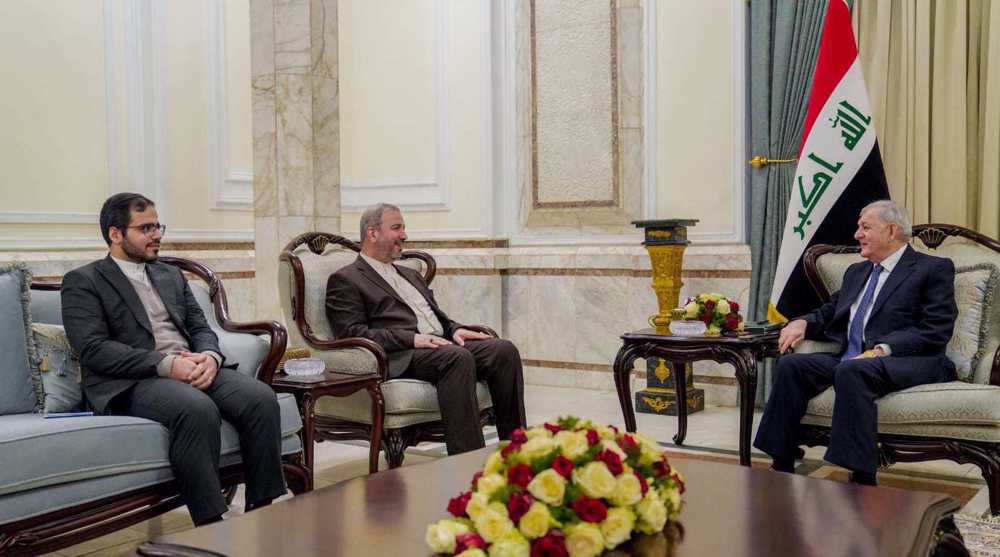
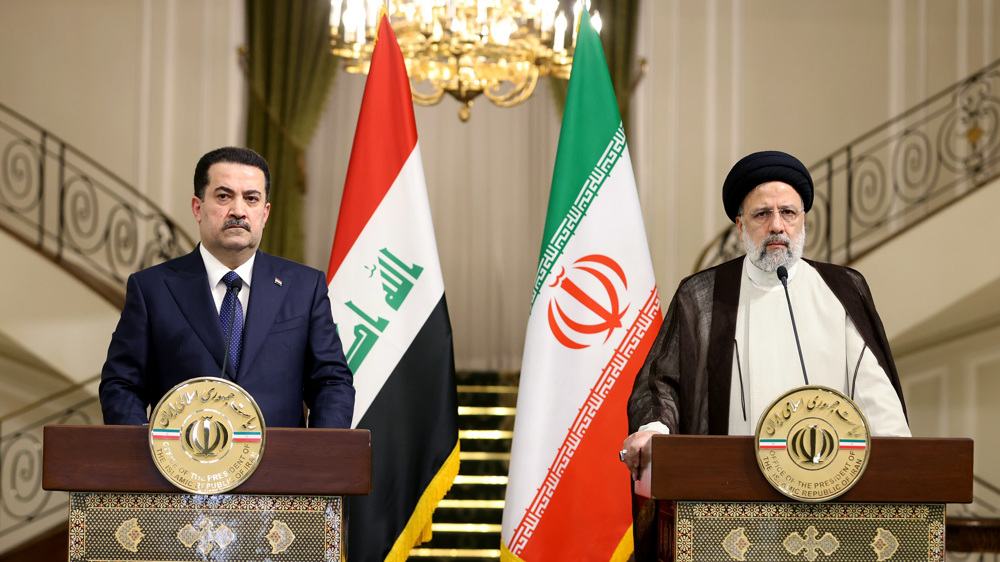

 This makes it easy to access the Press TV website
This makes it easy to access the Press TV website